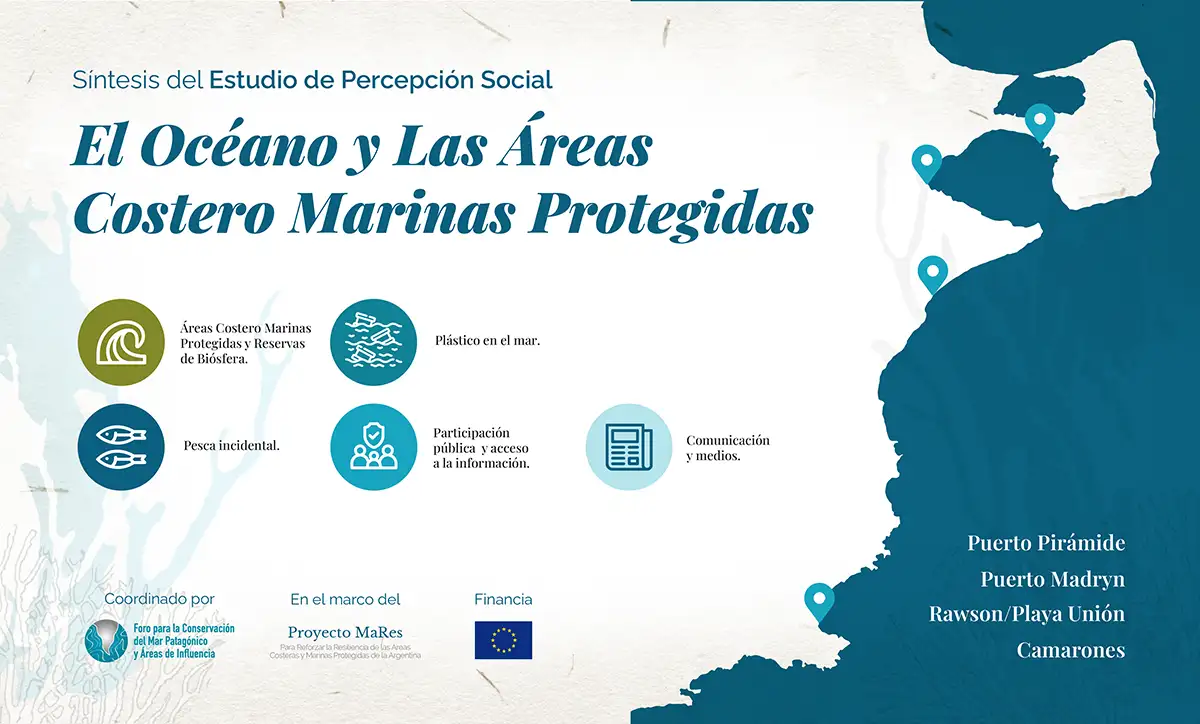On the coasts of Chubut, where the sea meets the lives of those who inhabit and travel it, there is a story that wants to be told: the link between people and the ocean.
For the first time, a research seeks to put into words what coastal communities think, feel and perceive about marine conservation with emphasis on Coastal and Marine Protected Areas.
This study, promoted by the Forum for the Conservation of the Patagonian Sea and Areas of Influence, is a milestone: it is the first time that the state of our sea and its challenges have been surveyed in this way.
Within the framework of the MaRes Project, together with SLConsultora, we surveyed what people in the communities of Puerto Pirámides, Puerto Madryn, Rawson (Playa Unión) and Camarones say, listening to the voices of fishermen, tourist operators, cattle ranchers, communicators and representatives of the local media and the community in general.
The central question was clear: how do those who depend on it or live with its coasts on a daily basis perceive the sea and its protection?
The answers are diverse, but they are unified by one certainty: the sea is at risk, and the conservation of its protected areas is an opportunity, but also a challenge.

What does the sea tell us, through its people?
Through quantitative and qualitative tools, we found out that:
Concern about plastic in the sea appeared as a call for attention that must be addressed immediately. The interviewees recognize the seriousness of the problem and the need to share responsibilities: tourism, the fishing sector, public administration and the community are all part of the solution, but also key players in the problem.
However, the study revealed something even more profound: there is a lack of knowledge about what Coastal and Marine Protected Areas are and the value they have for the future of the sea. Terms such as “MPAs” or “marine conservation” sound distant to many people, which opens up an urgent question: how can we better connect with those who have the sea so close and yet so distant?
In addition, limited public participation in the management of these areas was identified. Many are unaware of valuable tools such as the Escazú Agreement, which guarantees the right to a healthy environment through participation and access to information.
The challenge ahead
This study reflects not only concerns, but also opportunities. People value the sea, associate it with the positive, with life and the resources it offers. But protecting it requires local voices to be heard, understood and taken into account.
This research, which establishes a baseline, invites us to rethink how we communicate, how we raise awareness and how we inspire behavioral change. Because understanding what moves people to care for the sea – and what prevents them from doing so – is key to building a future in which conservation is part of the identity of coastal communities.
Click here to access the study summary and executive summary.